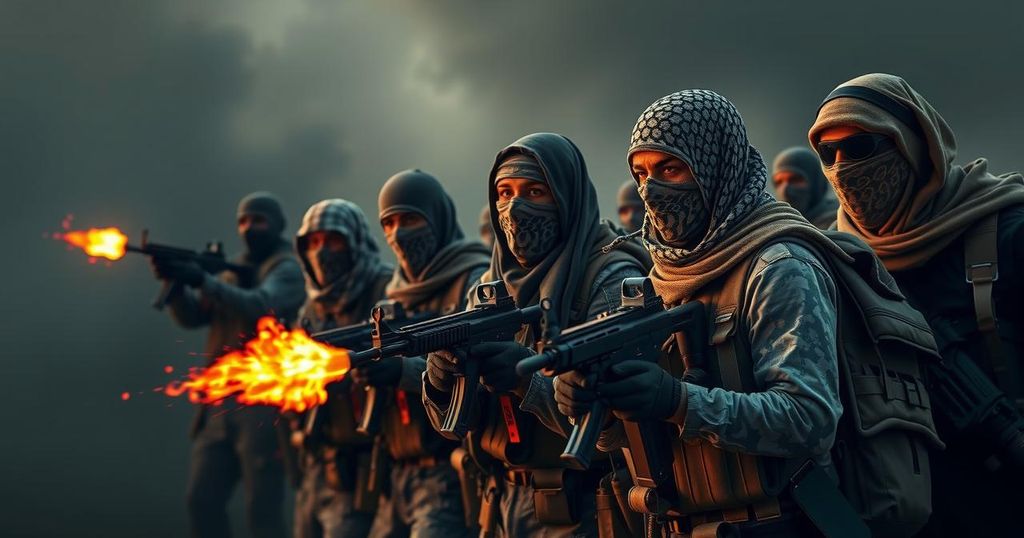The Operational Tactics of the Lakurawa Jihadist Group in Northwest Nigeria

Lakurawa is a new jihadist group operating in northwest Nigeria, particularly in Sokoto State. They enforce strict Sharia law, levy taxes, and compel forced marriages, while growing in strength and number following destabilization in the Sahel. Initially perceived as a protective force, villagers now face intimidation, leading to significant social and security concerns.
The newly emerged jihadist group, Lakurawa, has been making its presence felt in northwest Nigeria, specifically operating within four local government areas: Binji, Gudu, Tangaza, and Silame in Sokoto State. Known for their strict enforcement of Sharia law, the group imposes punishments on perceived wrongdoers while compelling villagers to pay Zakah and marry off their daughters to group members. Lakurawa has reportedly infiltrated these areas from the Sahel region, particularly following a coup in Niger that weakened military cooperation between Nigeria and Niger, allowing the group’s resurgence into Sokoto after being previously pushed out by local security forces. Lakurawa communicates to villagers about their disdain for police and government authorities while also condemning Western education. Members of the group deliver sermons in various languages, including Hausa and Fulfulde, and have been known to establish a lifestyle devoid of music and other forms of entertainment, asserting control over local religious practices. Residents initially viewed Lakurawa as a protective force against local bandits but have since grown fearful of their extreme measures, which include forced marriages and the collection of taxes, such as mandated agricultural contributions from families. The group’s recruitment strategy involves direct engagement with locals, enlisting individuals to assist in identifying and punishing those they view as deviant. Villagers now express trepidation over the group’s authority, given their capacity for violence and their influence over local governance. The group reportedly has a considerable membership exceeding 1,000 individuals, equipped with modern technology and resources, causing more fear among the residents than local security forces, thereby undermining traditional village leadership and authority.
In recent years, the proliferation of jihadist groups in Nigeria’s northwest region has posed significant security challenges. The emergence of Lakurawa illustrates a worrying trend, where local communities, initially seeking protection against banditry, become subject to the violent enforcement of radical ideologies. The geopolitical climate, particularly following the instability in neighboring Niger due to recent coups and conflicts, has enabled such groups to establish a foothold, complicating efforts for regional security and stability.
The rise of the Lakurawa group in northwest Nigeria underscores a dangerous shift in local power dynamics, where fear and coercion replace security and community wellbeing. With their aggressive recruitment and enforcement tactics, Lakurawa not only threatens the social fabric of the affected areas but also challenges the authority of traditional governance structures. Addressing this issue requires a multifaceted approach from Nigerian security forces, aimed at restoring order while addressing the underlying socio-economic vulnerabilities that contribute to the rise of such militant organizations.
Original Source: www.bbc.com







